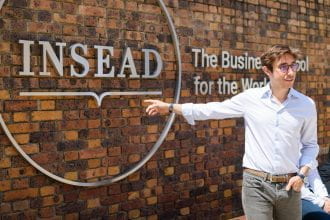According to a recent research report, more than half of the next-generation in Chinese family-run businesses will not want to join their parents’ enterprises. This highlights one of the major challenges facing family businesses in China today: how to run their business when family participation rates fall below acceptable levels. Owner-managers who are confronted with this issue have the option of bringing in outside professionals to run their family firms, even though a few family members might still be employed in their firms.
By hiring non-family managers, founders are able to devote more of their precious time on strategy rather than the day-to-day operations. Nevertheless the professionalisation of a family firm touches on sensitive emotional issues that non-family firms never have to confront. It can also lead to some unexpected consequences, as the story of Zhang Gang, the founder of the franchise-based restaurant chain Little Sheep, demonstrates.
Born in Baotou, Inner Mongolia, Zhang turned the little known Mongolian lamb-based hot pot dish into a mainstay of Chinese cuisine in the early 2000s. Little Sheep quickly became a franchise group with hundreds of outlets. To attract and incentivise key managers, Zhang offered founders’ shares to long-term employees and franchise owners who deeply respected his leadership. Zhang’s family was not numerous enough to keep up with the exponential growth of the food chain. Although Zhang was still in control of the business following five years of rapid growth, Little Sheep counted more than 50 co-founders who were committed to building the franchise. Without the dedication of the non-family managers, Zhang could never have grown Little Sheep into the powerhouse that it became. He started a process that went from a one-man band to a full symphony orchestra.
For many founders like Zhang, embarking on the professionalisation process is absolutely essential for the survival of the family firm. If family members are not available to take over the management of fast-growing private firms, founders have no other choice but to recruit non-family managers externally. In professionalising the executive suite, founders can free up their precious time to expand the scope of their leadership and vision. They can focus on big-picture questions like how to overcome roadblocks and headwinds and what new business strategies to adopt. They can also undertake new investments of existing plant and machinery, follow-up on long-term succession plans, restructure capital assets, conquer new markets or make foreign direct investment in other regions.
By placing the operational side of the business in the hands of competent professionals, founders can ensure that their families and firms survive until family members are sufficiently trained and ready to take over the top jobs. Having a long-term succession plan in place, even if it means skipping a generation, can make a company far more credible in the eyes of employees, customers, suppliers, investors, bankers and other stakeholders.
During the professionalisation process, founders should imbue the core family values into the organisational culture and fabric of the firm. Traditions and values can add a certain cache and depth to the organisation, making it easier to recruit, train and retain talent. In addition, a founder can convince the next generation that the firm should be managed like any other professional firm. In so doing, family members will feel more committed to their family-run firms and play a more active role in generational transitions. Professionalisation of the family firm can also attract investors such as new owners, bankers, venture capitalists in the public-equity markets.
Below are some of the key elements of the professionalisation process:
- Recruiting non-family managers to the executive suite, while encouraging them to make decisions that are in line with the founder’s vision. By providing incentives to non-family managers, founders can benefit from their commitment to best practices;
- Develop values-based leadership with a two-pronged approach to management:
- For Family Members: finding the right roles and jobs for current family members and next gens, so that the firm can continue to benefit from the interaction of generations;
- For Founders: taking less of an operational role while implementing more of the strategy in order to take the company to the next level;
- Empowering the board, ensuring that the directors are fully engaged in the selection of non-family managers. Founders should also avoid the risk of destabilising the board when the time comes for the directors to function in the absence of the chair.
By hiring non-family executives, founders can put themselves in a strong position to communicate their strategic vision and their objectives and goals while infusing the family spirit within the organisation. In this way, stakeholders can stay focused on the direction in which founders are trying to take the company, operationally and strategically.
Many owner-managers of family-run business in China who no longer play an active role in management have assume the role of chairman of the board, leaving the operations to non-family executives whom the founders have hand-picked. Others owner-managers have ultimately sold their businesses to outside investors. In the end, Little Sheep’s Zhang Gang exited his business via a sale to a conglomerate. Having diluted his share of the ownership to unacceptable levels, he no longer had the power to run the business the way he wanted it to be run. To avoid conflict with board directors, he decided to sell his stake so that the business could survive and continue satisfying its customers. Its current owner YumChina! has continued on with the business in pretty much the same way that Zhang would probably have. In that sense, Zhang’s values live on.
Morten Bennedsen is the André and Rosalie Hoffmann Chaired Professor of Family Enterprise, the Academic Director of the Wendel International Centre for Family Enterprise, and Director of INSEAD Family Business Activities. In addition, Morten Bennedsen is a Professor in Economics and Political Science at INSEAD. Brian Henry is an INSEAD Research Fellow.



